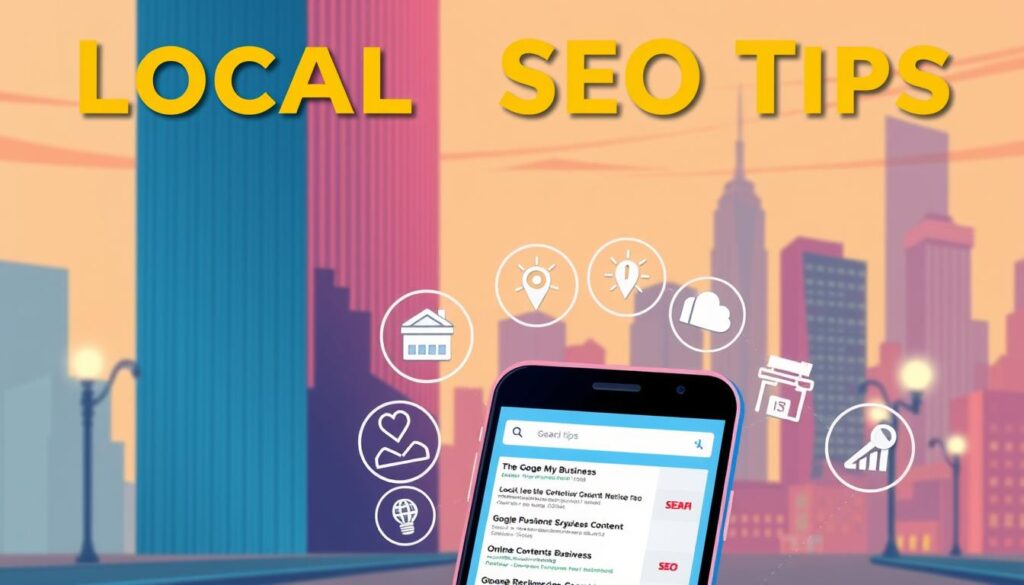Thinking about a career in digital marketing? It’s a field that mixes creativity with numbers to reach and engage people. It’s full of chances to grow and learn, and knowing the online marketing world is key to doing well. In this article, we’ll cover the skills you need, how to get educated, and the certifications that can boost your career.
This guide will open your eyes to the world of online marketing and how to handle its challenges. You’ll find out about roles like Content Marketer, SEO/SEM Specialist, and Social Media Manager. We’ll talk about what education and experience you need to get these jobs. Whether you’re starting or changing careers, this article will help you make smart choices for your future.
Key Takeaways
- Understanding the digital marketing landscape is essential for a successful digital marketing career.
- A digital marketing career offers numerous opportunities for growth and development.
- Practical experience and educational pathways are key for digital marketing skills.
- Professional certifications, like Google Analytics Individual Qualification, can improve your career chances.
- Keeping up with industry trends and best practices is important for success in online marketing.
- Networking and building relationships with industry experts can help you stay ahead in digital marketing.
Understanding the Digital Marketing Landscape
To succeed in digital marketing, you must grasp the current trends and their impact on your strategy. The digital world is always changing, with new tech and platforms popping up. It’s vital to have strong digital marketing skills to stay competitive and craft effective plans.
Understanding your audience is key in digital marketing. You need to tailor your strategy to reach them effectively. This means using data and analytics to improve your campaigns. With skills like SEO and social media marketing, you can boost your online presence and drive more sales.
Today’s digital marketing trends include influencer marketing, personalized content, and optimizing for voice search. These trends are changing how businesses market and connect with their audience. By keeping up with these trends, you can create a strategy that truly resonates with your audience and delivers results.
As you grow your digital marketing skills and develop a solid strategy, you’ll be ready to tackle the digital world’s changes. Always keep your audience in mind and refine your strategy to achieve the best outcomes.
Essential Skills for Digital Marketing Success
To succeed in digital marketing, you need both technical and soft skills. Digital marketing skills are key for making online campaigns work, understanding data, and improving marketing plans. A good education in marketing, communications, or business helps a lot.
Important skills include SEO, PPC, social media, and email marketing. You can learn these through courses like those from Google Digital Garage, HubSpot Academy, and LinkedIn Learning.
Keeping up with digital marketing trends is vital. Social Shepherd says digital ads can increase brand awareness by 80%. Also, 68% of online searches start with Google, showing SEO’s role. By improving your skills, you can grow your career and stay ahead.
Here are some key statistics to consider:
- Digital ads can boost brand awareness by 80% with prospective customers
- Nearly 68% of online experiences start with search engines like Google
- The number of email users is expected to reach nearly 4.5 billion by the end of 2024
By improving your digital marketing skills and focusing on professional development, you can open up new career paths and succeed.
| Skill | Importance |
|---|---|
| SEO | High |
| PPC | Medium |
| Social Media Marketing | High |
Core Digital Marketing Disciplines
Understanding the core digital marketing disciplines is key to a successful strategy. These areas are vital for a winning online campaign. Knowing them well can greatly help in reaching your audience and meeting your goals.
A good marketing plan should mix several key areas:
- Search Engine Optimisation (SEO)
- Pay-Per-Click Advertising (PPC)
- Social Media Marketing
- Content Marketing
- Email Marketing
By using these disciplines, you can build a strong online campaign. A great strategy is about knowing your audience and using the best ways to connect with them.
With the right mix of these digital marketing areas, you can craft a strategy that speaks to your audience. This will help you meet your online marketing objectives.
| Discipline | Description |
|---|---|
| SEO | Optimizing website content to rank higher in search engine results |
| PPC | Creating and publishing online ads that are paid for each time a user clicks |
| Social Media Marketing | Using social media platforms to promote products or services |
| Content Marketing | Creating and distributing valuable content to attract and engage with a target audience |
| Email Marketing | Sending targeted and personalized messages to customers or possible customers via email |
Educational Pathways to Digital Marketing
Starting your digital marketing career needs a strong educational base. You should study marketing, communications, business, or something similar. The U.S. Bureau of Labor Statistics says these are top degrees for marketing managers. You can learn many digital marketing skills through degrees, online courses, and certifications.
Some schools offer quick digital marketing courses. For example, a Digital Marketing Certificate Course lasts 10 weeks. It covers Google Analytics, Google Ads Search, and HubSpot Email Marketing. These courses help you get the skills needed for your digital marketing job.
Key skills to focus on include:
- SEO and SEM
- Marketing analytics
- Content creation
- Social media marketing
Learning these skills prepares you for the digital marketing world. You’ll be able to make smart decisions for your career and professional growth.
The need for digital marketing skills has grown a lot. Businesses now value their online presence more than ever. With the right education and training, you can thrive in this fast-changing field. You’ll reach your digital marketing career goals through ongoing learning and development.
Professional Certifications Worth Pursuing
To boost your digital marketing skills, think about getting professional certifications. These can keep you current with new trends and best practices in digital marketing.
Google Certifications, Meta Blueprint, and HubSpot Academy are some top options. They offer courses from basics to advanced levels. This helps you gain the skills and knowledge needed for success in digital marketing.
Here are some benefits of getting professional certifications in digital marketing:
- Improved digital marketing skills and knowledge
- Enhanced career prospects and job opportunities
- Increased earning power
- Staying current with the latest trends and best practices in digital marketing
By getting professional certifications and improving your digital marketing skills, you can build a successful marketing strategy. This will help you move forward in your digital marketing career.
| Certification | Duration | Cost |
|---|---|---|
| Google Analytics Certification | Varies | $21.99 |
| HubSpot Academy’s Content Marketing Certification | Varies | Free |
| Meta Blueprint Social Media Marketing Professional Certificate | Varies | Free |
Building Your Digital Marketing Portfolio
Starting your digital marketing career? A strong portfolio is key. It shows your skills and experience to employers. A good portfolio can boost your job search by highlighting your best work.
Include different digital marketing channels like websites, ads, and social media. Add personal projects and school work to show your creativity. Always get permission and credit others in your client projects.
What should your digital marketing portfolio have?
- An ‘about you’ page, highlighting your experience and niche
- Professional experience details, including testimonials and case studies
- Examples of your work, such as websites, ads, and social media campaigns
- Contact information, making it easy for employers to reach you
Make your portfolio modern and focused on your area of expertise. Use website builders like WordPress and Wix for a professional look. Keep your content organized and easy to find.
| Portfolio Component | Importance |
|---|---|
| An ‘about you’ page | High |
| Professional experience details | High |
| Examples of work | Medium |
| Contact information | High |
How to Get into Digital Marketing Without Experience
To start in digital marketing without experience, learn the key digital marketing skills. You can do this through self-study or formal courses. Focus on marketing strategy, social media, SEO, and content marketing.
Steps to become a digital marketer without experience include:
- Gaining work experience through internships, volunteering, or freelance projects
- Building a portfolio displaying completed projects
- Considering getting certified through professional digital marketing qualifications
Courses like Climb Hire’s Paid Search Marketing program offer training. You’ll learn technical skills and get hands-on experience. After finishing, you join a community of peers for support and networking.
By following these steps and learning the right digital marketing skills and marketing strategy, you can succeed in digital marketing. You don’t need prior experience to start.
Networking in the Digital Marketing Space
To grow in digital marketing, building a strong network is key. Attend industry events, join online groups, and use LinkedIn well. This keeps you updated with the latest trends and best practices, boosting your career.
Many marketing leads need a digital marketer but don’t know where to find one. Networking helps you meet these leads and show your skills. In fact, 42% of freelancers get high-paying jobs through word-of-mouth, showing networking’s power.
Industry Events
Going to industry events is a smart move. You meet others, learn new things, and stay current in digital marketing. Events include conferences, workshops, webinars, and meetups. They help you grow your network and keep your skills sharp.
Online Communities
Being part of online groups, like those on Twitter and LinkedIn, is also beneficial. These spaces are for sharing knowledge, discussing, and working together. They help you become a leader in your field and attract clients.
LinkedIn Strategies
A great LinkedIn profile is essential for showing off your marketing skills. Use LinkedIn to connect with others and attract clients. Remember, a strong network is vital for career growth and professional development.
Creating Your Personal Brand
To succeed in digital marketing, creating a strong personal brand is key. It’s about showing off your digital marketing skills and having a unique marketing strategy. This makes you stand out and builds trust and credibility.
Building a personal brand takes time and effort. But it opens doors to valuable connections, networking, and career growth. Start by defining what makes you unique, knowing who you want to reach, and being consistent online. Share your knowledge, connect with others, and use testimonials to grow your brand.
Here are some tips for building a personal brand:
- Define your unique value proposition
- Know your target audience
- Keep a consistent online presence
- Share your expertise and engage with others
Authenticity is vital for a strong personal brand. Be yourself and show your digital marketing skills and marketing strategy in a way that connects with your audience. With a solid personal brand, you can become a digital marketing expert and achieve lasting success.
Entry-Level Digital Marketing Positions
Starting your digital marketing career? It’s key to know the entry-level jobs out there. These roles offer hands-on experience and a solid base for your online marketing journey. You might find jobs like digital marketing coordinator, social media manager, and content creator. These are vital for a company’s digital marketing plan.
While a marketing degree is helpful, it’s not always needed. 40% of marketing pros don’t have one. Employers look for candidates who can show off their work. This could be through personal projects, like a blog or a website, which prove your digital marketing skills.
Common Job Titles
- Digital Marketing Coordinator
- Social Media Manager
- Content Creator
Required Qualifications
To excel in these roles, you’ll need skills in SEO, PPC, and social media marketing. You can learn these through online courses, like Google’s Academy certifications, which are free and respected. Also, doing personal projects or volunteering at small businesses can give you valuable experience and make you stand out.
Application Tips
When applying for these jobs, make sure your resume and cover letter match the job. Emphasize your relevant skills and experiences. Include examples of your work and projects. With an average entry-level salary of $53,678, according to Glassdoor, show your worth and promise to employers.
Transitioning from Other Careers
Thinking about a career change? You might be surprised to find that your current skills can fit into digital marketing. People from sales, marketing, communications, and web design have made the switch. It’s key to look at what skills you already have and plan your move.
Skills like analytical skills, creative thinking, and problem-solving abilities are valuable in digital marketing. If you’ve worked in marketing or communications, you might already have these. Knowing about digital marketing skills and having a good marketing strategy can also help you succeed.
To start, here are some steps:
- Identify your transferable skills and experience
- Develop a career switch strategy, including any necessary training or education
- Build a professional network in the digital marketing industry
- Stay up-to-date with the latest trends and best practices in digital marketing
By taking these steps and using your existing skills, you can smoothly move into digital marketing. You’ll be able to create a strong marketing strategy that highlights your digital marketing skills.
| Skill | Transferable from | Valuable in Digital Marketing |
|---|---|---|
| Analytical skills | Finance, accounting, or business | Yes |
| Creative thinking | Design, writing, or art | Yes |
| Problem-solving abilities | Engineering, computer science, or mathematics | Yes |
Industry Tools and Software Proficiency
To do well in digital marketing, knowing industry tools and software is key. As you grow, you’ll use many tools to make your work easier and better. For example, Google Analytics helps you understand data, guiding your marketing plans.
Important tools include Adobe Creative Cloud for making content, HubSpot for inbound marketing, and SEO platforms like SEMrush for optimizing search. Knowing these tools well can boost your career and help you grow professionally. Here are some tools to improve your skills:
- Website builders like WordPress, Wix, and Squarespace
- Content management systems (CMS) such as WordPress, HubSpot, and Joomla
- Analytics tools like Google Analytics and social media management tools like Hootsuite and Buffer
Learning these tools makes you ready for digital marketing’s challenges. Keep up with new trends and tools to stay ahead.
Spending time on learning these tools will benefit you in the future. It lets you create strong marketing campaigns, analyze data, and make smart decisions. This helps your career grow and advance in digital marketing.
Timeline and Progression Path
Starting your digital marketing journey means understanding the timeline and progression path. It takes time to develop digital marketing skills. A clear plan helps you stay focused. In the first 90 days, focus on the basics of digital marketing, like marketing strategy.
A good marketing strategy helps you make smart decisions and move your career forward. Use online resources like Google’s ‘The Fundamentals of Digital Marketing’ course. This will deepen your understanding of the field. As you progress, you’ll see how digital marketing skills are key to business success.
First 90 Days
In this time, you should:
- Get a basic grasp of digital marketing channels like SEO, PPC, and social media
- Keep up with the latest trends and best practices in digital marketing
- Start building your professional network by going to industry events and joining online groups
Six-Month Milestones
After the first 90 days, you can dive into more advanced topics. For example:
- Work on creating and implementing a detailed marketing strategy
- Improve your skills in data analysis and interpretation
- Keep up with the latest in the industry and digital marketing skills
Long-term Career Development
In the long run, aim to:
- Keep updating your digital marketing skills to stay current
- Look for advanced certifications and training to boost your knowledge and skills
- Explore different roles in digital marketing, like SEO, content marketing, and social media. Develop a marketing strategy that fits your goals
Conclusion: Your Digital Marketing Journey Starts Now
As you finish this detailed guide, your digital marketing career is about to begin. The digital marketing world is full of chances for those eager to learn and grow. Whether you’re new or moving from another field, success comes from hard work, passion, and a love for learning.
Start your online marketing dream today. Use the tips and strategies from this guide to move forward in digital marketing. Build a strong skill set and become a key player for businesses. With the right attitude and a focus on doing well, your digital marketing path can open doors to great jobs and growth.
The digital world keeps changing, so keep up, learn new tech, and update your plans. Make friends, talk to industry experts, and look for ways to learn more. Your digital marketing adventure begins today – dive in with excitement, and the benefits will come.










